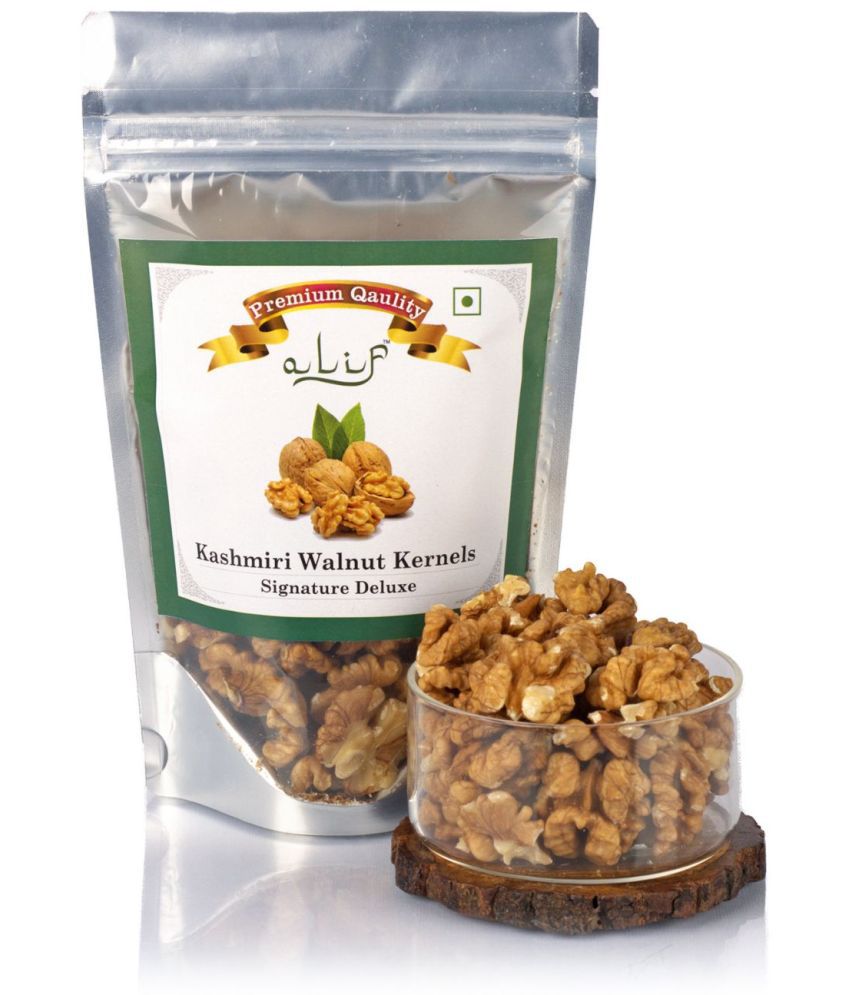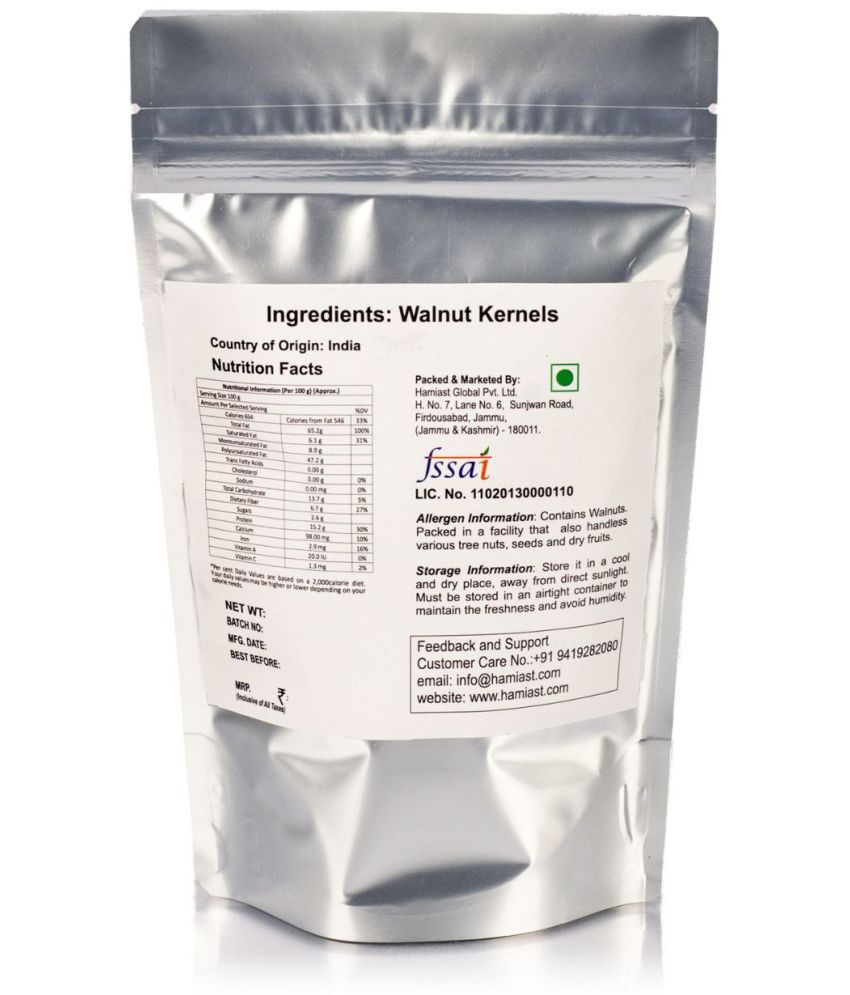Walnut (Akhrot) from Kashmir
Kashmiri Walnuts are high in protein, vitamins, omega 3 fatty acids, trace minerals, lecithin and oils. Compared with other nuts, which typically contain a high amount of mono-unsaturated fats, Kashmiri Walnuts are unique because the fats in them are primarily poly-unsaturated fatty acids (PUFAs) and are the only nut with a significant amount of alpha-linolenic acid. Moreover, Kashmiri Walnuts have insignificant amounts of sodium and are cholesterol free. Alif Kashmiri Walnuts are a premium organic produce from the fields of Kashmir Valley. Hygienically packed in a way which retains freshness and its nutritional values, Kashmiri Walnuts are served only in their best and healthiest state to its patrons.
What is special about Kashmiri Walnuts?
Kashmiri Walnuts are famous worldwide for their superior taste and quality. Yet the best thing about Kashmiri Walnuts is the fact that they are organic. No chemical fertilizers are used in the process of growing Kashmiri Walnuts. Kashmiri Walnuts are rich in poly-unsaturated fats and mono-unsaturated fats and are a good source of proteins. Being rich in Omega 3 Fatty Acids, Kashmiri Walnuts are considered the best nut for brain health.
How are Kashmiri Walnuts Cultivated?
The walnut harvesting season is the Autumn season here in Kashmir and our Kashmiri growers start plucking and picking the crop. It starts with beating the branches of a huge walnut tree with a long stick (Lanz) so that the crop falls to the ground. It is done manually by the one who climbs up to the top of the walnut tree.
Once the crop falls to the ground, it is a round, green colored crop. The outer green cover is called the husk (Gollur) while the harder shell inside it surrounding the fruit is called endocarp (Kend). This crop is collected in huge numbers and a process of removing their green cover takes place. It is done mostly by the women folk of the grower’s family.
They do it by beating the collected crop with a thick wooden stick so that the green cover comes off. It is not as easy as it looks. While the women do this, their hands turn jet black because of a toxic chemical called juglone present in the husk of the crop. This not only causes staining of the hands but also causes immense skin irritation. Now the crop is brown, round and hard shelled. It still has a residue of its green covers and the chemical juglone. It is finally removed by washing the crop properly, particularly done in streams (running water). After the washing is done, the walnuts are collected
and left to dry in the open sun. These are kept in the sun for a few days so that the fruit inside the hard shell is also dried and becomes hard to use as a dry fruit.
The hard shell is finally broken and the walnut kernels are collected for final packaging to be delivered to you only through Kashmir Hamiast.


